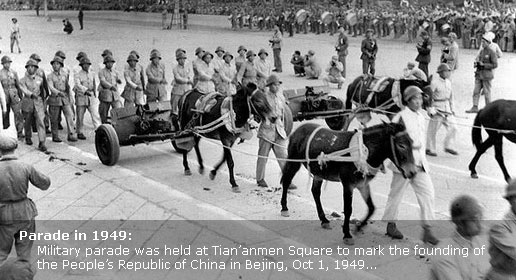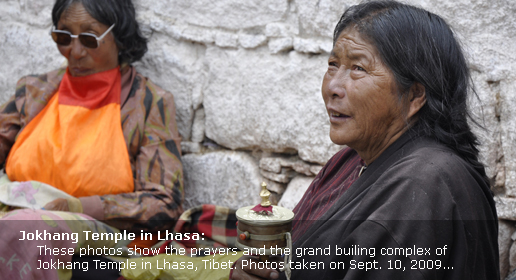Ethnic Unity
China issues white paper on ethnic policy
(Xinhua)
Updated: 2009-09-27 15:36
BEIJING: The Chinese government Sunday published a white paper on its ethnic policy, stressing harmony and equality among all ethnic groups.
It was the third white paper on China's ethnic policy after two reports were issued respectively in 1999 and 2005, said an official with the State Ethnic Affairs Commission.
"Through this white paper that summed up our ethnic policy and practice, we hope the international society could have a better understanding about the reality our policy is based, about what the policy is, and the impact it has on solving ethnic issues and promoting the development of ethnic minorities in China," the official said.
In China, home to 56 ethnic groups, the Han ethnic group has the largest population while the other 55 ethnic groups are relatively small and called ethnic minorities.
In the past 60 years, the population of ethnic minorities reported continuous increase, from 6.06 percent of the total population in 1953 to 8.41 percent in 2000, said the paper.
The latest national census was conducted in 2000.
Facts proved the country's ethnic policy was effective, the official said. "The Chinese government will stick to it and improve it according to the changing reality."
The country's ethnic policy ensures the equality among all ethnic groups, the paper said.
They enjoy equality in personal freedom, legal rights, participation in state affairs, religious belief, use of their own languages and maintaining their own customs, said the paper, entitled China's Ethnic Policy and Common Prosperity and Development of All Ethnic Groups.
In the past six decades, China has basically established a legal system with its own characteristics to guarantee the equality of all its ethnic groups, it said.
Ethnic minorities took part in state affairs at the equal footing with Han people. Of the 161 members of the 11th National People's Congress (NPC) Standing Committee, the country's top legislature, 25 were from ethnic minorities, accounting for 15.53 percent of the total.
Their religious belief was widely respected and protected by law. In Xinjiang, there are over 24,300 mosques and 28,000 Moslem clergymen. In Tibet, there are over 1,700 venues for Tibetan-Buddhist activities, with 46,000 monks and nuns living in temples, according to the paper.
China's ethnic policy was centered on ethnic unity. Great efforts were made in the past six decades to maintain the unity among all ethnic groups and eliminate all factors adverse to it, the paper said.
China stepped up the publicity and education in ethnic unity, especially among young people. This year, it included ethnic unity education into entry exams of high schools and colleges.
The country held that ethnic issues are its internal affairs, the paper said.
"The Chinese government resolutely opposes all foreign interference in the country's internal ethnic affairs under the excuses of ethnicity, religion and human rights," it said.
The country is determined, in accordance with the law, to guard against and crack down on any infiltration into China, sabotage and subversive activities against China conducted by forces of terrorism, separatism and extremism, it said.
The 58-page document is divided into seven sections: A Unified Multi-Ethnic Country and a Nation with Diverse Cultures; Full Equality among Ethnic Groups; Consolidating and Developing the Great Unity of All Ethnic Groups; Upholding and Improving Regional Ethnic Autonomy; Accelerating the Economic and Social Development of the Ethnic Minorities and Minority Areas; Protection and Development of Cultures of the Ethnic Minorities; Striving to Foster Cadres and Talented People of the Ethnic Minorities.












